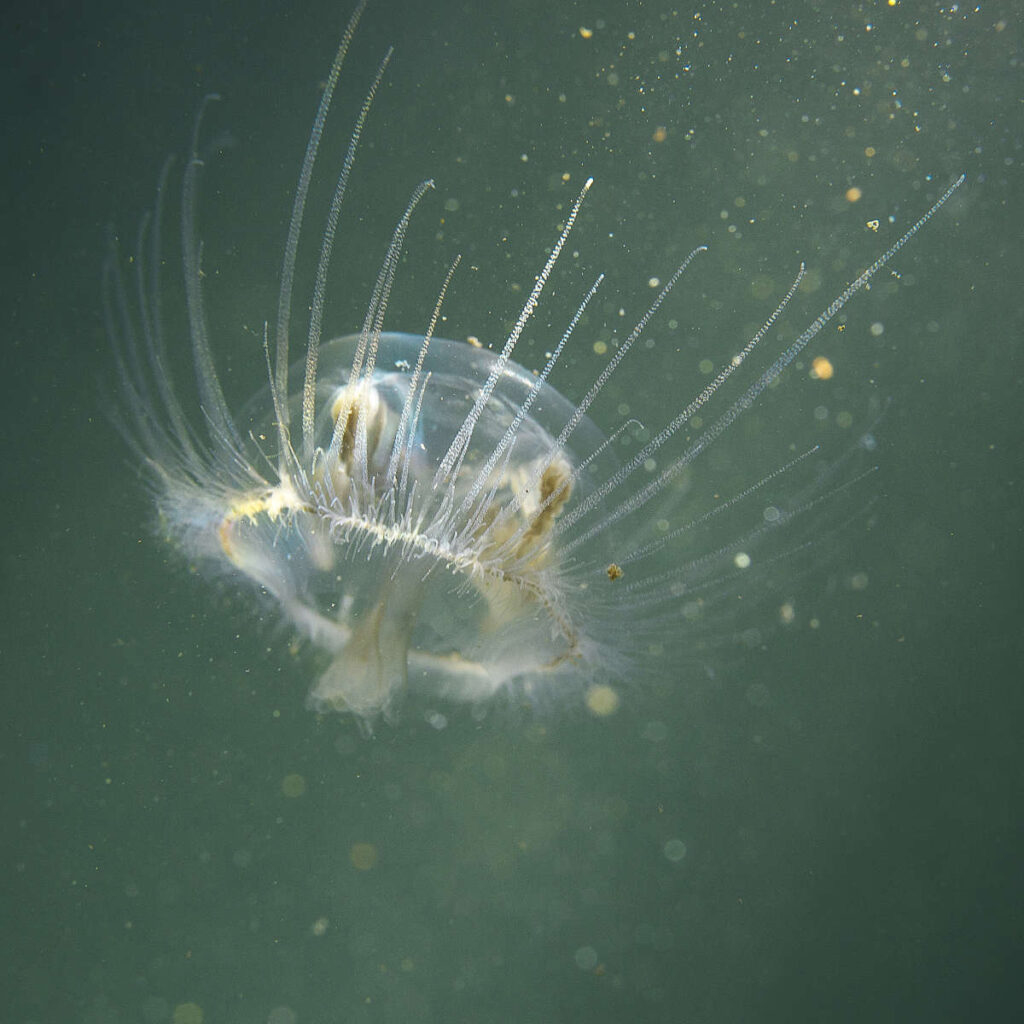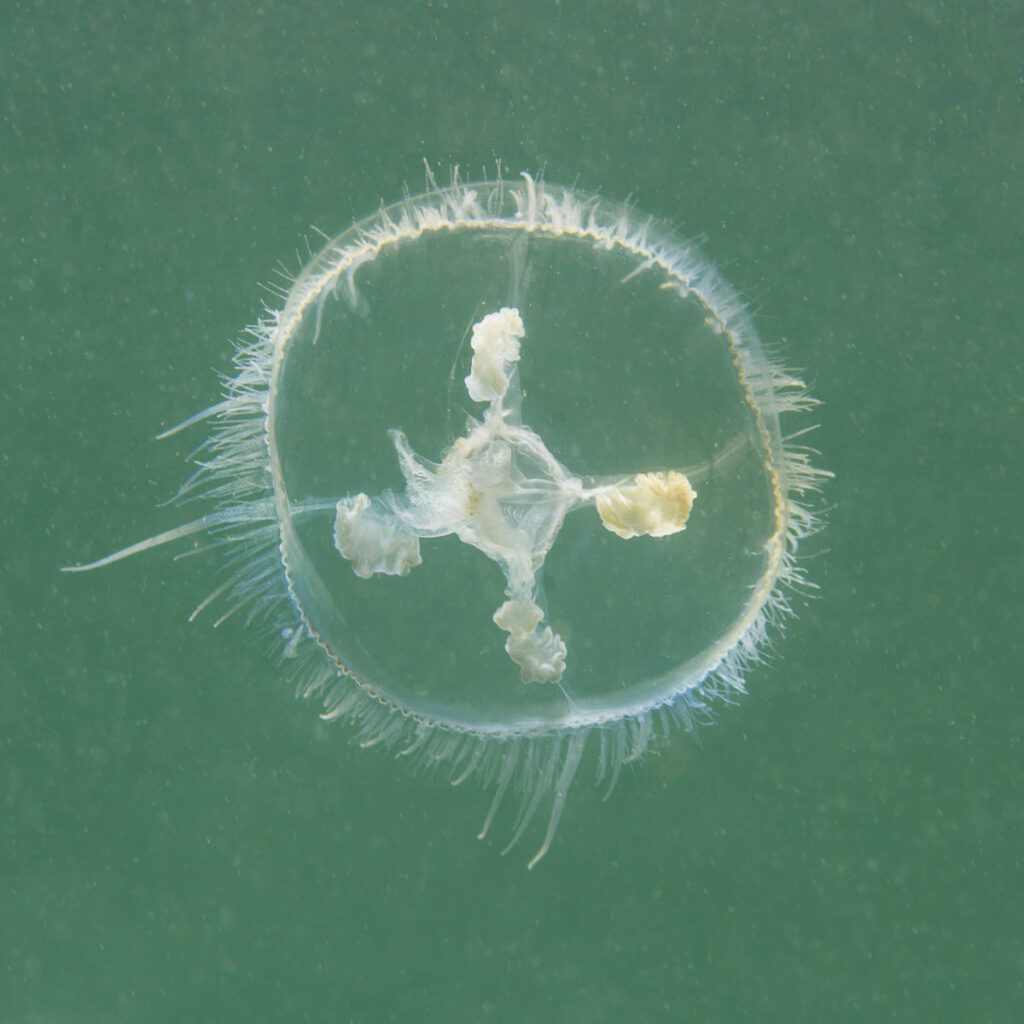Last Reviewed and Updated on July 7, 2022
You know you should be wary of jellyfish if you take a dip in the ocean but should you also keep your eyes peeled in lakes and rivers? Are there freshwater jellyfish that could ruin your swim? Let’s look at the answer to this question.

Some Basics About Jellyfish
Jellyfish are some of the most fascinating creatures in the sea. They come in a wide variety of shapes and sizes, and their colors can be just as varied. They can be found in every ocean in the world, from the warm waters of the tropics to the cold waters of the Arctic.
Despite their beauty, jellyfish can be dangerous creatures. Their stings can cause pain and even death in humans.
Jellyfish are not fish, but rather invertebrates (animals without backbones). They are classified as cnidarians, which include corals and anemones. Jellyfish are composed of 95% water and have a seemingly simple structure, with no brain, heart, or bones.
Despite their simple structure, jellyfish are very efficient predators. They use their stinging tentacles to capture prey and inject them with venom. Jellyfish can eat anything from plankton to fish.
Want more? Read through these jellyfish facts.
Are there freshwater jellyfish?
So you know these animals are regularly found in seawater but do they live in freshwater? The answer is yes!
Craspedacusta sowerbii, commonly known as peach blossom fish or as an even more fitting name freshwater jellyfish is a jellyfish that lives in freshwater.
This species is native to the Yangtze basin in china however it has spread across the globe (except Antarctica) and can be found in many places. It is present in most American states. It is considered an invasive species in places it is not native.
You will usually find it in calm waters such as lakes, reservoirs, and gravel pits… It can also be found in slow-moving rivers.

Are freshwater jellyfish dangerous?
These jellyfish are relatively small, measuring about 1 inch / 20-25 mm in diameter and they mostly feed on zooplankton. Like all other jellyfish, they do have poison in their tentacles that help them hunt their prey, however, they are specialized for small prey and don’t seem to have the capacity to pierce the human skin.
You have nothing to fear when it comes to freshwater jellyfish, but as with all wild animals, if you see one leave it alone and let it be.
